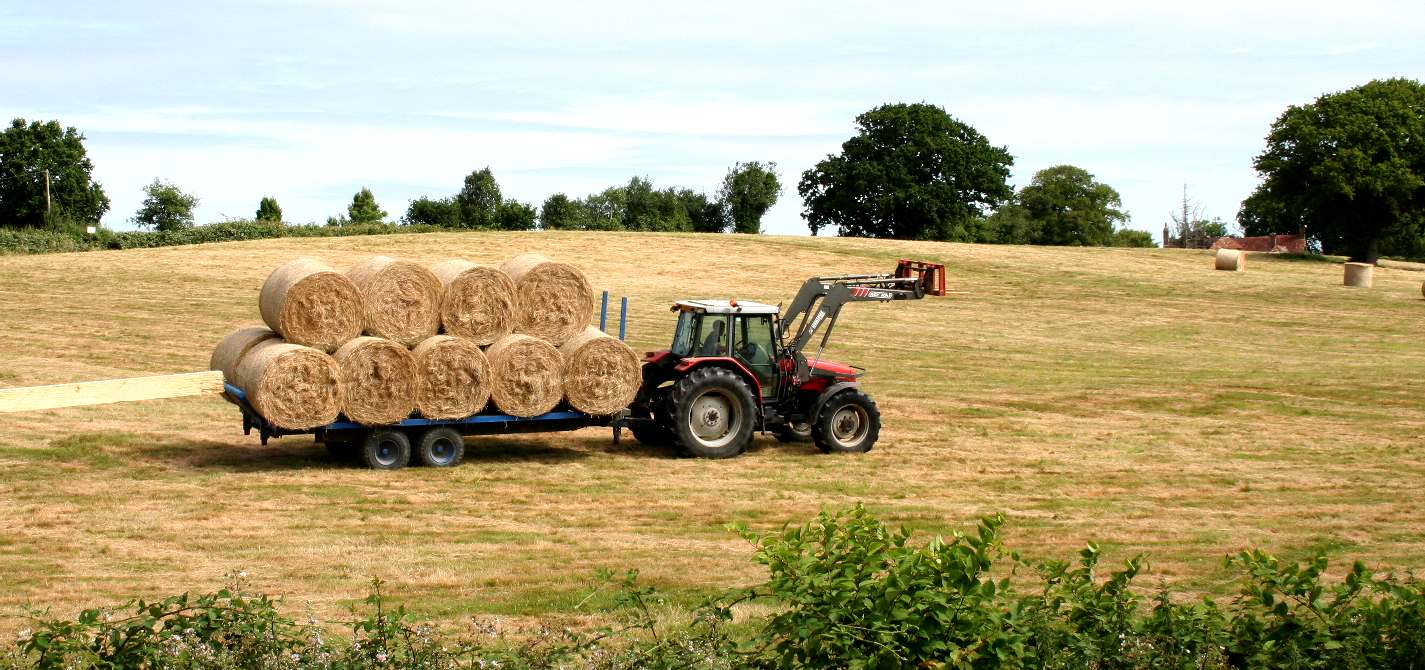|
FARMING
|
FARMING - The backbone of any society is the production of food to feed the population, though these days much of what we eat is imported from other producers, such as fish farmed in Asia, around 60% is home grown. That is a good thing because we can no longer find enough fish locally having exhausted our fisheries. Agriculture is also changing where we have drained the soil for so long with artificial fertilizers that yields will fall, meaning a shift to obtaining protein from the sea - but unfortunately we are disposing of around 8 millions tons of plastic in our seas - poisoning marine life that we need to keep us nourished. Food security is therefore high on the United Nations agenda via the Food and Agriculture Organization. This picture was taken in the summer of 2017. This land is set to be built on with more climate unfriendly houses in Sussex.
Agriculture is a big subject that covers the growing of crops, fishing and trees being grown for wood by way of a carbon lock.
Rearing livestock for food is one of the biggest contributors to greenhouse gases, whereas growing trees provides us with oxygen and wood that locks up carbon. We should love trees. There is a scale of carbon dioxide in relation to the production of meats, fish, vegetables and fruits, with dairy produce somewhere in between. you can see from these scales that eating nuts, cereals and fruits would fulfill your protein and antioxidant requirements.
Beef and lamb is right off the scale climate wise, but most of us enjoy a kebab or a burger from time to time - abhorrent as that may seem to some. Midway, we have dairy, fish and poultry that gives variety at reasonable levels of methane gas production. Ideally, we need meat substitutes that taste like meat and provide the animal fats we need to remain healthy.
Obviously, we need to be able to grow crops and produce livestock for food, but we should be looking at educating the population as to diets that are more CO2 and methane neutral. Many people would change their diets if they knew the harm they were causing by way of global warming by eating red meats. Campaigns such as No Meat Mondays are proving this. Changing to a pescetarian, vegetarian or vegan diet could have major benefits in the quest for a cooler planet.
Ecological footprints are measured in global hectares (gha) - the amount of bioproductive land and sea available on the planet. We can calculate our footprint by adding up the hectares it takes to grow our food and farm the animals we eat; the hectares our house stands on; the hectares that oil refineries and other energy infrastructure we depend on take up; the hectares of forest that would be needed to absorb the CO2 emitted by our fuels; a share of the hectares taken up by our roads; and everything else we do that has an impact on the planet’s ecology. This is a WWF Definition.
But where do we get the idea that meat eating is bad for the climate? It seems every one points to a 2006 report from the United Nations Food and Agriculture Organisation that found that the meat industry produces more greenhouse gases than all the SUVs, cars, trucks, planes, and ships in the world combined. The report, entitled Livestock’s Long Shadow, claimed that meat production accounts for about 18% of the world’s total greenhouse gas emissions.
Regardless of the difficulties, we need to secure food supplies to feed a growing population.
CARBON DIOXIDE & TREES
We need to lock up as much carbon as possible using wood, and for that we need to grow more trees sustainably. This should be a prime target for local authorities to encourage eco house building in their geographical regions. Wood is good.
Coal is a product of wood from the great forest of our past, and a natural way of locking carbon. This is also true of oil. When we burn coal or oil we release locked up carbon, back into the atmosphere. Using renewable energy to replace coal and oil can only benefit the human race and every other species on earth that is relying on us to do the right thing.
|
|
This website is provided on a free basis as a public information service. copyright © Climate Change Trust 2019. Solar Studios, BN271RF, United Kingdom.
|
